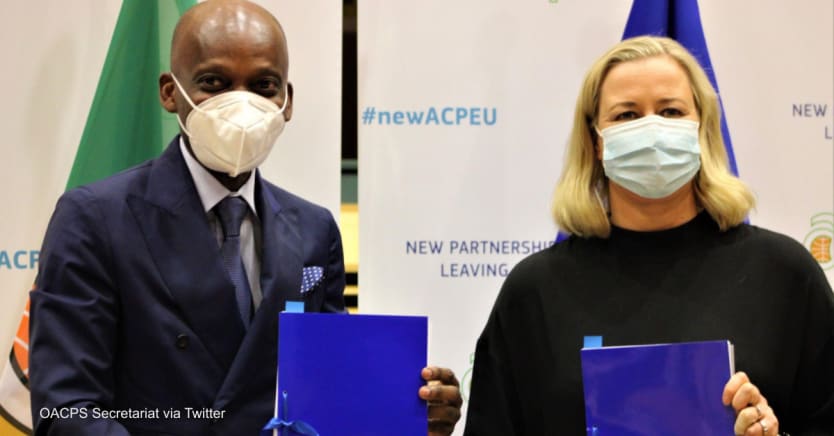
As the European Union and the Organisation of African, Caribbean and Pacific States inch closer to ratifying a new partnership agreement, civil society groups from across those regions are organizing to ensure they are integrated into whatever structures ultimately emerge from the deal.
The new agreement, which negotiators completed in April, is a successor to the 2000 Cotonou Agreement that aimed to eradicate poverty and integrate ACP states into the world economy. The new treaty is much broader in scope, addressing climate change, migration, and peace and security.
It also “foresees an active role for civil society,” Sandra Bartelt, who sits in the cabinet of European Commissioner Jutta Urpilainen, said during a discussion Thursday on the relationship between policymakers and civil society under the Post-Cotonou Agreement.
Emerging points of influence: One of the key new entry points for civil society was in the regular partnership dialogues required to set priorities and potential actions. They are “much more comprehensive” than those in the Cotonou Agreement, said commission official Domenico Rosa, and explicitly include civil society and the private sector.
Civil society is also included in the formation and implementation of regional protocols — which ACP Civil Society Forum’s Joyce Naar said offered an opportunity for more focused civil society interventions, but also threatened to divide global solidarity.
EU institutions in power struggle over Africa, Caribbean, Pacific pact
Member states are crying foul as the European Commission argues that it alone should sign a sweeping partnership agreement.
Why this matters: The new agreement still has to be approved, signed, and ratified by the parties, but Slovenia, which took over the presidency of the Council of the EU this month, is promising to strive for completion of the process before its six-month term ends. That puts pressure on civil society groups to carve out their new role.
Adoption is far from assured, though, with EU members such as Poland and Hungary still objecting to some aspects of the agreement.


